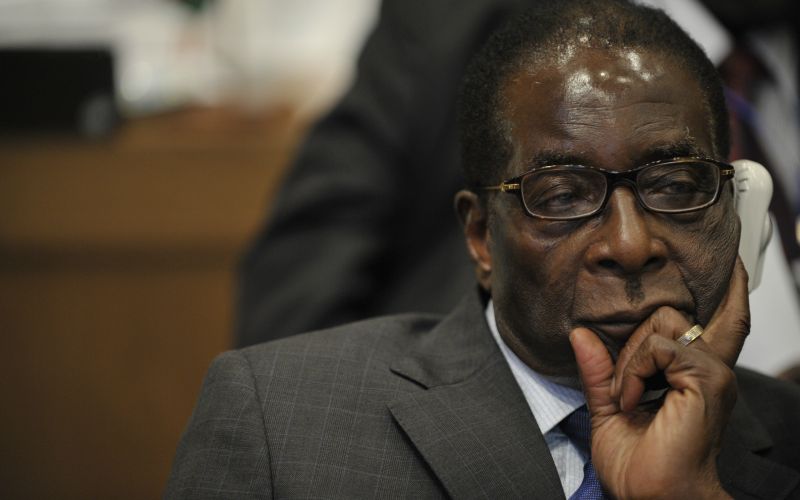Summary: Robert Mugabe, president of Zimbabwe, will resign from his position after the country rose up against him and considered impeachment.
Zimbabwe president Robert Mugabe has agreed to resign after the country turned against him and threatened impeachment. Mugabe had been the ruler of the country for 37 years and was the world’s oldest-serving leader.
House Assembly speaker Jacob Mudenda announced Mugabe’s resignation to a joint sitting of lawmakers in the capital city Harare. The joint sitting was to vote on a motion to impeach the 93-year-old president. The announcement was met with celebrations, leading to parties in the streets as the nation celebrated.
The Zimbabwe African National Union-Patriotic Front party fired him as their leader just days ago and ordered him to step down as president. Mugabe had fired his vice president, Emmerson Mnangagwa, 75, earlier this month in an effort to replace put his wife into power. Mnangagwa will serve as the interim leader and the Zanu-PF’s presidential candidate during the elections next year.
Lovemore Matuke, Zanu-PF’s chief parliamentary whip said, “We have fought the lion and won.” Within the next two days, Mnangagwa will be placed into power.
The Zanu-PF party placed the president under house arrest four days ago in response to his dismissal of Mnangagwa. Armed forces commander Constantino Chiwenga led the military takeover. Mugabe initially refused to cooperate, missing a deadline set by the party to quit or be impeached, but later gave in to the demands.
Head of African analysis at Bath, England-based Verisk Maplecroft, Charles Laurie, said, “The ecstatic jubilation on the streets of Harare this evening at the news of Mugabe’s resignation gives some sense of what it is like to live under the heel of a dictator. The almost unbelievable tenacity of Mugabe to resist the will of his people and resign gives some sense of the near impossibility of removing this man from power at the ballot box over the past 37 years.”
Lecturer Takavira Zhou at the Great Zimbabwe University in Masvingo said, “It was long overdue. The president could no longer withstand the pressure. However, the key issue is when will we have a transitional government and how will it work – will Zanu-PF go it alone.”
The country is in shambles economically. Around 95 percent of the country’s workforce is unemployed, there are extensive shortages of food and cash, and the public infrastructure is falling apart. Much of the hardship is due to Mugabe’s support in seizing white-owned farms, which resulted in low agricultural production, export earnings, and tax revenue.
Mugabe started out as a primary-school teacher before getting into politics at Fort Hare University in South Africa. He went on to form the Zanu-PF party in 1963. He was placed behind bars that same year after calling for the violent takeover of Ian Smith’s white-minority government. He spent 11 years locked up, during which time he obtained degrees in education, economics, and law. Upon release, he escaped to Mozambique to lead the Zanu-PF party, which controlled the biggest of two guerrilla armies in Rhodesia.
The U.K. brokered a deal to end the war and put Mugabe in power in 1980. By 1982, he had accused his coalition partner Joshua Knomo of plotting to overthrow him, leading to violence erupting again in the country. He led a military crackdown, which ended up killing 20,000 people in the western region of Matabeleland. In 2000, he gave permission for his supporters to take over the white-owned farms, leaving the country without food. Zimbabwe had been one of the biggest exporters of corn in southern Africa. In 2005, he ordered a slum-clearance program, kicking out at least 750,000 people.
He lost the election in 2008 but refused to step down. With the help of international mediators, Mugabe agreed to share power but eventually reclaimed power in 2013.
Do you think Zimbabwe will be able to recover with a strong leadership or will the new leader be just as corrupt at Mugabe? Share your thoughts with us in the comments below.
To learn more about military action in African nations, read these articles:
- Poll: 95% of Zimbabweans Looking Around to See if Anyone Else Will Start Protesting Elections First
- South Africa Police Kill 34 Protesting Miners, Claiming Self Defense
- United States Embassy Evacuated in Central African Republic
Photo: commons.wikimedia.org













































